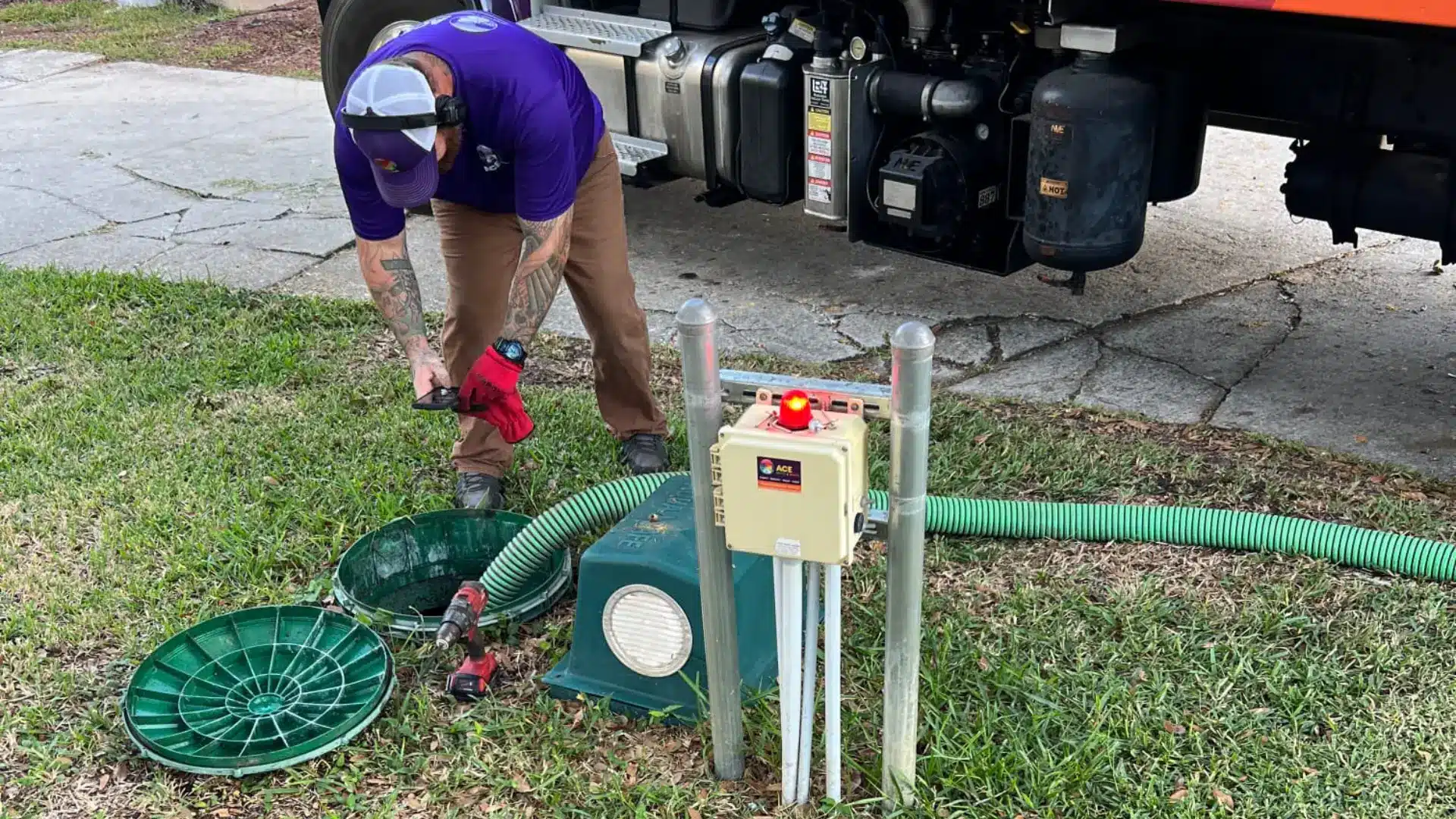Septic tank pumps play a crucial role in the functioning of most septic systems, moving wastewater effectively. This article explores the different types of pumps found in septic systems. Each type of septic system pump has a specific role, ensuring that septic systems work efficiently and safely while protecting the environment and public health. Whether you’re dealing with a high-elevation drain field or looking to improve your wastewater treatment, understanding how these pumps operate provides valuable insight into the overall health of a septic system.
Effluent Pumping over Gravity Systems
Many systems use pumps to move wastewater (effluent) from the septic tank to the drain field or other secondary treatment systems. Effluent pumps can be optional but are always necessary for systems where the drain field is higher than the septic tank. They may also be used when the effluent must be distributed over a wide area.
Dosing Tanks
Advanced septic systems (and many systems in Florida) will have a dosing tank installed. These systems have pumps used to dose the effluent in controlled amounts. This ensures that the drain field receives effluent at intervals, allowing for better absorption and filtration by the soil. Controlled dosing helps prevent over-saturation of the drain field, which can lead to system failure and environmental contamination.
Grinder Pumps
Some pre-treatment septic systems include a grinder pump, which grinds solid waste into smaller particles before pumping the effluent to the drain field or treatment area. A grinder pump reduces the risk of clogs in the system and improves wastewater treatment efficiency.
Lift Stations
Lift stations also qualify as septic pumps. These stations are larger devices used primarily for commercial systems to collect and pump wastewater into the main line of a sewer system. They consist of a pump, a tank to collect wastewater, and controls/floats to automate the process.
Aeration Pumps
In aerobic treatment systems, aeration pumps introduce oxygen into the effluent, promoting the growth of aerobic bacteria. These bacteria are more efficient at breaking down organic matter in the wastewater, resulting in cleaner effluent discharging to the drain field.
Recirculating Pumps
In advanced treatment systems, such as recirculating sand filter systems, pumps recirculate effluent through the filter multiple times. This process increases the contaminants removed, ensuring the effluent is cleaner before reaching the drain field.
Chemical Injection Pumps
Some septic systems, especially post-treatment systems for wastewater requiring additional treatment to meet specific regulatory standards, use pumps to inject chemicals into the effluent. These chemicals can help neutralize harmful pathogens, adjust pH levels, or reduce nutrient concentrations before releasing the effluent.
Effluent Disinfection
In areas where the treated effluent is discharged directly into sensitive environments, pumps may be used to dose disinfectants such as chlorine or UV light to kill remaining pathogens, ensuring that the discharge meets health and environmental safety standards.
Backup Systems
Battery-operated or manual backup pumps can prevent system overflow or failure during power outages. These pumps ensure that effluent continues to be moved to the drain field or treatment area, preventing backups and potential health hazards.
Sump Pumps
Sump pumps may be used in basements or crawl spaces that house part of the septic system or plumbing to prevent flooding and convey wastewater from these lower areas to the septic tank or sewer line, especially in areas prone to high groundwater levels or flooding.
Graywater Systems
For systems designed to separately treat greywater (wastewater from showers, sinks, and laundry), pumps direct this less contaminated water to a dedicated greywater disposal area, reducing the load on the central septic system and promoting water reuse.
While your system may not have most of these pumps, regular septic system maintenance can prevent common problems, such as system failures or environmental contamination. If you’re experiencing issues with your septic system or want to ensure it’s in top condition, consider contacting the experts. Call ACE Septic & Waste today for professional advice, service, or maintenance. Let us help you keep your septic system running smoothly and efficiently.







